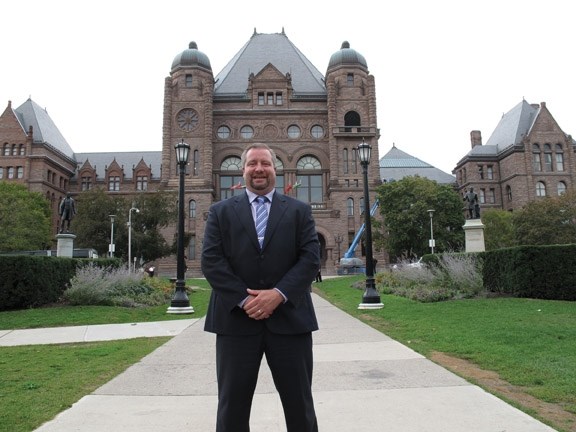In a controversial move, the Ontario government has announced that hospital patients awaiting placement in their preferred long term care home will be moved to a long term care facility not of their choosing to free up bed space for patients needing acute care.
Starting today, such patients in southern Ontario can be moved up to 70 kilometres away, while those in northern Ontario may be moved up to 150 kilometres away.
The government - which made the announcement September 14 - said that such moves would be on a temporary basis.
Patients who are moved into facilities they do not want to go to will stay on the priority list for their preferred long term care home, the government said.
The government’s policy was passed in the Legislature as Bill 7 without public hearings and has led to anger from seniors and their families.
“We’ve had many discussions and we’ve put plenty of questions and concerns from families and seniors to the government over the last few weeks while this legislation was passing through the House,” said Michael Mantha, Algoma - Manitoulin MPP, speaking to SooToday.
Beginning on November 20, hospitals will be told to charge patients a daily fee of $400 if they have been discharged by a doctor and don’t agree to being moved to a long term care home not of their choice.
“We were accused of fear mongering but people are being told that if you do not move you will be seeing additional fees while staying at a hospital,” Mantha said.
But the New Democrat MPP said that the emotional and physical toll will be worse for some in comparison to a hefty daily fee.
“People are being separated from their families. This is hurting our families and what’s going to end up happening is people are going to end up dying away from home, away from their families. That's the scary part about all of this,” Mantha said.
Bill 7 comes after seniors in long term care homes were separated from family members during the earlier weeks and months of the COVID-19 pandemic.
“This government is bending to corporations, to those that have those long term care homes that have been identified as problematic, that have lost a lot of their residents, that have vacant beds because they don’t have proper accommodations, because the care is not up to the level that it is in other areas,” Mantha said.
“Once again this government is bending to those who are looking for profit instead of making decisions based on the best health care for our seniors across this province.”
Mantha said repealing Bill 7 is only part of the solution he and his NDP colleagues, seniors and their families would like to see.
“We need more public long term care homes. We need municipally run not for profit long term care homes. We’ve seen numerous reports that in those homes the care is above every other private sector facility that is out there. That’s where we need to invest our dollars,” Mantha said.
Meanwhile, Mantha said he will be checking with hospitals in his riding to see what level of care they provide and if it is truly necessary to send some patients to long term care homes not of their choosing.
“We’re starting to hear concerns now of individuals being moved in the Sudbury area,” Mantha said.
Mantha said he and his NDP colleagues will continue to protest Bill 7 but added the public also needs to raise its concerns over the legislation to make opposition truly effective.
“We need the public and municipal leaders to start making their voices loud and clear. This Ford government is not listening to the Official Opposition. They’re passing legislation as they see fit.”
Sault Area Hospital said it will fall in line with the law.
“The implementation of Bill 7 will support and improve patient flow, increasing patient access to specialized acute care. This short-term strategy will improve the utilization of existing beds in long term care while also easing pressures on our emergency department and surgical backlogs,” wrote Rose Calibani, Sault Area Hospital communications and public affairs officer in an email to SooToday.
“At SAH, we have experienced constant and sustained bed pressure for a number of years, which has only increased during the COVID-19 pandemic. These bed pressures affect every aspect of our operations and how our patients access care and move through our hospital. For many patients, the hospital is not the right place for them to be receiving care. With our partners at Home and Community Care and their case managers, appropriate placement for our patients will be determined, and continued work with our patients and families will be ensured,” Calibani wrote.
As of Wednesday, SAH had 61 patients who are designated Alternate Level of Care (ALC), with 18 of those patients awaiting nursing home placement.
The Ontario government has said that there are approximately 1,800 hospital patients waiting for a place among their preferred choices for a long term care home.
The government says couples will be allowed to remain together and that it is working to respect religious, ethnic and language preferences.
First Nations homes will also be exempted.
SAH acknowledged this will be a challenge for some patients and their families.
“SAH recognizes that difficult decisions must be made, however, we are committed to ensuring that this legislation is implemented in a compassionate and respectful way that aligns with our values,” Calibani wrote.
